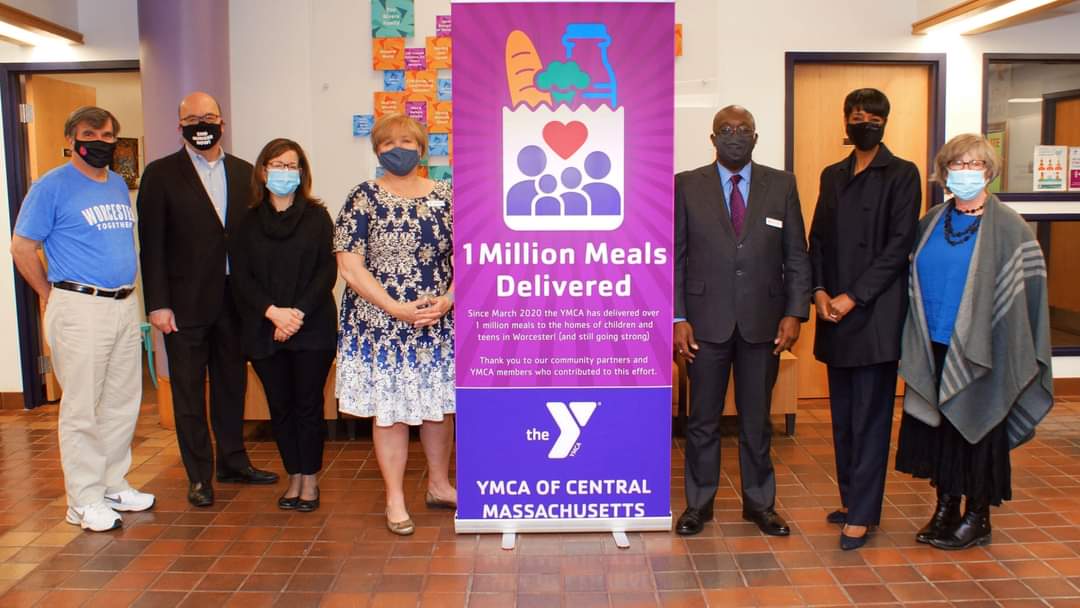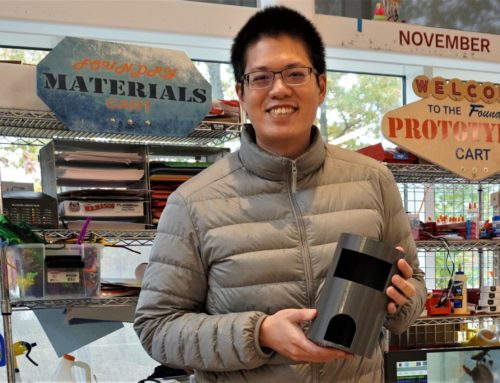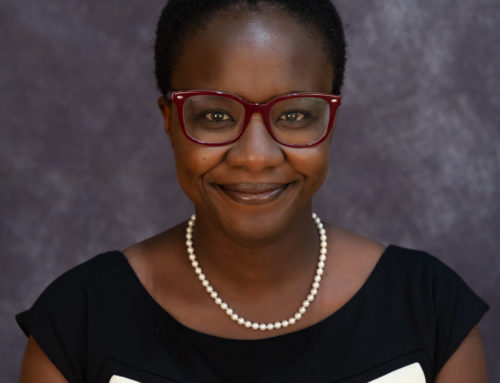When the pandemic hit, schools closed. Students were sent home, and teachers appeared virtually. But many gaps remained, including in food security. With one in five kids in Worcester County going hungry, thousands of children were missing the daily meals provided by their schools.
And so, the YMCA of Central Massachusetts stepped in. Since the onset of the pandemic, the organization has served more than one million meals.
“The YMCA has always been doing work around food insecurity, whether it’s meals in the summer or we have open food sites,” said Pam Suprenant, senior executive director of youth development and the central region. “It was on the radar, but I think like many things with the pandemic, it amplified the need in the community.”
In March 2020, Worcester Public Schools set up 30 sites where people could go and get food cooked by their kitchen staff, part of the United State’s Department of Agriculture’s National School Lunch program.
“The hard part about that is that even though it is 30 sites, Worcester is 37 square miles. People are afraid to go out because of COVID-19. People don’t have cars. People have lots of kids. It’s still winter…The timing of it is wrong. They’re working,” Suprenant said. “There’s 900 reasons why people can’t get to these mobile food sites.”
So the YMCA realized that the food needed to go directly to the families’ homes.
Suprenant and her team called the people they knew, families in after-school programs and more, asking if they needed help.
“We started with the school’s van, which had seats in it. We got meals from the Worcester Public Schools. We drove around and dropped off the food and then the next day and the next day.”
What started with ten addresses quickly grew to 50 within weeks, then hundreds more within months. The organization delivered three meals a day for each child that needed it.
On Fridays, the group delivers nine meals, so no one goes hungry on the weekends. The group also had to plan ahead for winter storms, delivering double the meals if there was a call for snow the following day.
“It got to be a lot. We borrowed vans from all the other Y’s,” Suprenant said. “We’ve never done this. We made it up as we went.”
Every day, people were adding new deliveries, creating ever-changing complex routes. The YMCA also delivered meals through the summer, as services tend to decrease during this time. Even when schools reopened, Suprenant found that parents were still keeping their students home out of safety.
“Every time we thought we were coming to the end, it really was ramping up,” Suprenant said. “At its height, I think we had 14 different routes, and we were delivering 2,000 meals a week.”
For the first two months of the program, Suprenant delivered meals through the program and recalled people waiting at their doors for the meals, waving, smiling, and thanking her.
“As a person, it’s gratifying to be able to help,” Suprenant said.
Her team’s dedication to ending hunger will always stay with her.
“One of our staff members had an ill family member. We were trying to convince him to take time off and be with his family,” Suprenant said. “He looked straight at me and said, ‘I got to get food to these people. If I don’t, they won’t have food.’”
As a greater goal, Suprenant wants the organization to lower the stigma around food insecurity. Throughout this campaign, they prioritized their clients’ dignity, treating the meals like a delivery service similar to Grubhub or UberEats. They simply handed the food that was “ordered,” and wished the people a good rest of their day. Suprenant notes that anyone, anywhere, could fall on difficult times.
“The pandemic has leveled the playing field,” she said. “The people living on the edge are now below the edge. The people that were okay are now not okay. I think we’re seeing a lot of new people dealing with issues and concerns like hunger…This is new for a lot of people, needing help and asking for help.”
Suprenant said they won’t stop until the need is gone. They are now working to secure grants that will support the staff’s work, pay for gas money and more.
“At the YMCA, we were never in food insecurity work, but now we’re deep in it and talking with different people about how to solve this systemic problem,” Suprenant said. “For me, it is the shift in our thinking and our collaborations and our partnerships. I think the best thing is that we’re working together and stronger.”
But through all the hours — extra or otherwise — Suprenant is proud of her team.
“It was a gap. It was a need. We have never done anything like it. We stepped into it,” Suprenant said. “We did it with a ton of partners, a lot of volunteers, and the community coming together.”







Leave A Comment